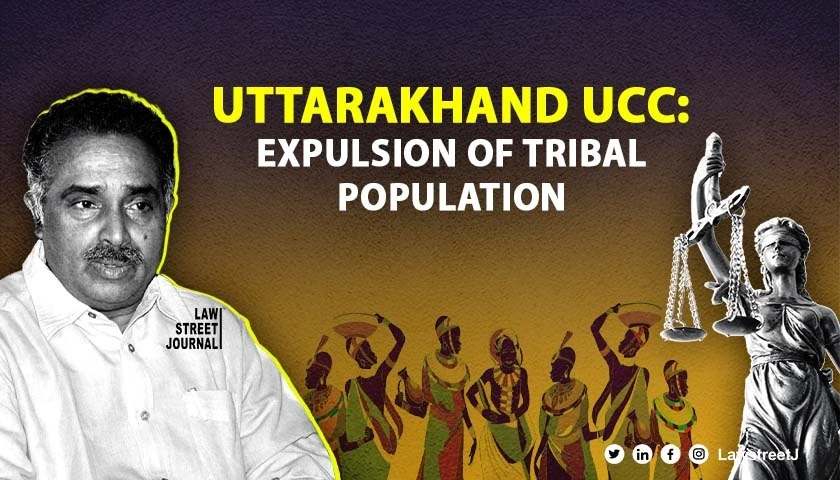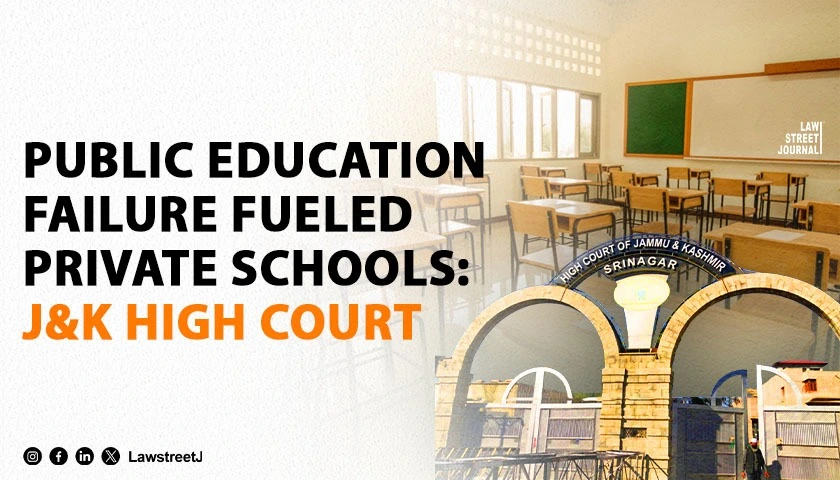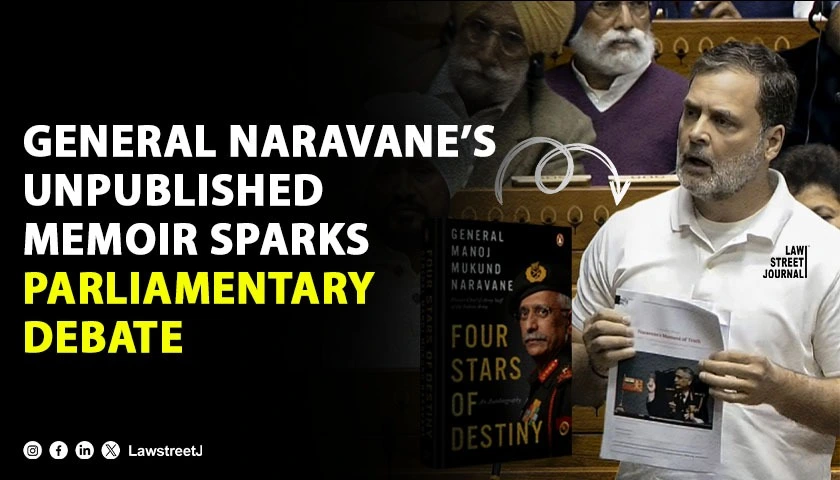NEW DELHI: Our country operates not on the basis of the Bible or the Quran, but on the Constitution, which, by its etymology (Sam+Vidhan), signifies a code that is uniformly applicable to all. Whether a son or a daughter, Hindu or Muslim, Parsi or Christian, a fetus gestates in the womb for nine months, and the agony of childbirth remains the same for both genders.
This clarifies that discrimination between men and women is not ordained by God, Allah, or Jesus, but is a construct of human society. Should any book propagate discrimination, it is not divine but a human fabrication. The prevailing discrimination between men and women in our society is not tradition but a malpractice initiated by humans, not a religious ritual but a harmful practice begun by individuals, and associating these malpractices and harmful practices with religion, faith, or spirituality is entirely incorrect.
According to Article 14, we are all equal. Article 15 prohibits discrimination based on religion, caste, language, region, or place of birth. Article 19 grants all citizens the right to move freely, reside, settle, and engage in employment anywhere in the country. A clear reading of the Constitution reveals that equality, equal opportunity, and equal rights form the essence of the Indian Constitution. Some oppose the 'Uniform Civil Code or Indian Civil Code' citing the religious freedom granted under Article 25, but in reality, they misguide society. Article 25 begins with 'Subject to public order, health, and morality,' implying the right to follow tradition and practice, but does not protect any 'malpractice, harmful tradition, hypocrisy, and discrimination.'
Laws established by the British in 1860, such as the Indian Penal Code, the Police Act of 1961, the Evidence Act of 1872, and the Civil Procedure Code of 1908, apply equally to all Indians without discrimination. Similarly, the Portuguese Civil Code of 1867, applicable to all citizens of Goa, applies equally. However, despite extensive discussions, Article 44, i.e., the Uniform Civil Code, has never been seriously pursued, and no draft has been prepared. To date, the Constitution has been amended 125 times, and the Supreme Court's decisions have been overturned five times, yet no draft for the 'Uniform Civil Code or Indian Civil Code' has been prepared, leaving many unaware of its benefits. The Uniform Civil Code has always been part of the BJP's manifesto, hence BJP supporters favor it, while opponents criticize it. However, the truth is neither its proponents nor its critics are fully aware of its benefits, making the immediate drafting of the Uniform Civil Code essential.
The absence of a Uniform Civil Code presents numerous problems:
Muslim Personal Law allows polygamy, whereas other religions strictly enforce 'one husband, one wife.' Even for valid reasons like infertility or impotence, remarriage in Hindu, Christian, and Parsi communities is a crime punishable by up to seven years in prison under IPC Section 494, leading some to convert to Islam for the sake of remarriage. In a secular country like India, four marriages are permissible, while in Islamic nations like Pakistan, a husband cannot remarry without the first wife's consent. 'One husband, one wife' is not a religious or sectarian issue but pertains to "civil rights, human rights, and the right to dignity" and should be gender-neutral and religion-neutral.
The minimum age of marriage is not uniform for all. The age of adulthood for Muslim girls is not specified, and girls are considered eligible for marriage upon reaching puberty, leading to marriages as young as nine years old, whereas in other religions, the minimum age for marriage is 18 for girls and 21 for boys.
The World Health Organization has repeatedly stated that girls are not physically or mentally mature before 20 years of age, and pregnancy before 20 poses significant risks to both mother and child. Both boys and girls are not mentally mature before 20 years, often not completing graduation or achieving financial independence, hence the need to standardize the minimum age of marriage at 21 years for all. 'Minimum age of marriage' is not a religious or sectarian issue but pertains to civil rights and human rights, making it also gender-neutral and religion-neutral.
Despite the illegality of triple talaq, other forms of divorce like talaq-e-hasan and talaq-e-ahsan are still valid, with no obligation to state a reason for divorce and only a three-month waiting period required, while in other religions, divorce can only be obtained through court. Hindu, Christian, and Parsi couples are also deprived of the facility for verbal divorce through mutual consent. The lack of judiciary accountability in Muslim divorce practices perpetually places Muslim daughters in fear. Countries with a Muslim majority like Turkey do not recognize any form of verbal divorce, making the grounds for divorce gender-neutral, religion-neutral, and uniform for all.
In Muslim law, oral wills and donations are valid, whereas in other religions, only registered wills and donations are recognized. Muslim law restricts wills to a third of the property, while other religions allow wills for the entire property. Wills and donations are not religious or sectarian issues but pertain to civil rights and human rights, making them also gender-neutral, religion-neutral, and uniform for all.
The Muslim law's inheritance system is overly complex, with significant discrimination between sons and daughters in ancestral property, while the rights of wives in property acquired after marriage are undefined in other religions, and the laws of inheritance are complicated. There is no provision to protect daughters' rights to parental property after marriage, and wives' rights in property acquired after marriage are undefined. 'Inheritance' is not a religious or sectarian issue but pertains to civil rights and human rights, making it also gender-neutral, religion-neutral, and uniform for all.
The grounds for divorce (dissolution of marriage) are not uniform for all. Based on adultery, a Muslim can divorce his wife, but the wife cannot divorce her husband. In Hindu, Parsi, and Christian religions, adultery is not even a ground for divorce. Diseases like leprosy can be grounds for divorce in Hindu and Christian religions but not in Parsi and Muslim religions. Divorce based on early marriage is possible in Hindu religion but not in Parsi, Christian, and Muslim religions. 'Dissolution of marriage' is not a religious or sectarian issue but pertains to civil rights and human rights, making it also entirely gender-neutral, religion-neutral, and uniform for all.
Adoption rules also vary for Hindus, Muslims, Parsis, and Christians. A Muslim woman cannot adopt, and in other religions, adoption is subject to male dominance. 'The right to adoption' is not a religious or sectarian issue but pertains to civil rights and human rights, making it also entirely gender-neutral, religion-neutral, and uniform for all.
The minimum age of marriage, grounds for divorce, alimony, adoption rules, inheritance laws, and property rights are all related to civil rights, unrelated to religion or religious practices. However, 75 years after independence, discrimination between men and women persists in the name of religion. Our constitution makers envisioned a 'Uniform Civil Code' through Article 44 to ensure equal rights and opportunities for all and to strengthen the unity and integrity of the country, but due to vote bank politics, not even a draft of the 'Uniform Civil Code or Indian Civil Code' has been prepared.
The Uniform Civil Code is the soul of our Constitution and has numerous benefits:
Like the Indian Penal Code, the implementation of an Indian Civil Code for all citizens will free the country and society from hundreds of complex, redundant, and outdated laws.
Different laws for different religions foster a sense of inferiority, so a 'Uniform Civil Code' for everyone will eliminate this feeling.
The 'one husband, one wife' rule will apply uniformly, and exceptions like infertility or impotence will benefit equally, regardless of gender, religion, or community.
A common rule for marriage dissolution will apply to all. Special circumstances will allow for verbal dissolution of marriage for everyone, regardless of gender, religion, or community.
Sons, daughters, and daughters-in-law will have equal rights in ancestral property, regardless of religion or community, eliminating discrepancies based on religion, caste, region, and gender.
In the event of divorce, both spouses will have equal rights in property acquired after marriage, regardless of religion or community.
Laws related to wills, donations, guardianship, division, and adoption will apply uniformly to everyone, regardless of religion or community, and discrepancies based on religion, caste, region, and gender will end.
A comprehensive and unified law at the national level will apply uniformly to all citizens, regardless of religion or community.
The separatist mentality arising from different laws based on caste, religion, and region will end, accelerating the formation of a unified nation.
Different laws for different religions lead to unnecessary litigation. A uniform civil code for everyone will save valuable time for the courts.
The implementation of the Indian Civil Code will end orthodoxy, fanaticism, sectarianism, regionalism, and linguistic bias, fostering scientific thinking and ending discrimination against daughters. The truth is that daughters will benefit more from this, especially Muslim daughters, as they are not considered equal to men under Sharia law.
Article 37 clearly states that implementing directive principles is the government's fundamental duty. Just as following the Constitution is every citizen's fundamental duty, fully implementing the Constitution is the government's fundamental duty. No secular country has different laws based on religious grounds, but in India, the Hindu Marriage Act, Parsi Marriage Act, and Christian Marriage Act are still in force. Until the Indian Civil Code is implemented, calling India secular is an insult to the word secular. If a 'Uniform Civil Code' can be implemented for all citizens of Goa, why can't an 'Indian Civil Code' be implemented for all citizens of the country?
The implementation of the Uniform Civil Code will not interfere in any way with fundamental religious rights under Article 25, such as worship, prayer, fasting, managing temples, mosques, churches, gurdwaras, opening religious schools, promoting religious education, adopting any marriage or funeral method. The day a draft of the 'Indian Civil Code' is made public and the general public, especially women and daughters, become aware of its benefits, no one will oppose it. The truth is that those who know nothing about the Uniform Civil Code are the ones opposing it.
Laws based on caste, religion, language, region, and gender are like smoldering smoke from the extinguished fire of the 1947 partition, potentially exploding and fragmenting the country's unity at any time. Therefore, abolishing these laws and implementing an 'Indian Civil Code' is not only essential for maintaining secularism but also for preserving the country's unity and integrity. Unfortunately, the 'Indian Civil Code' has always been viewed through the lens of appeasement.
The Supreme Court cannot instruct the central government to make laws but can express its sentiment and has repeatedly done so. The Supreme Court can direct the formation of a judicial commission or expert committee to prepare a draft of the Uniform Civil Code by studying the uniform civil codes of developed countries and the laws applicable in India, combining their best features into a draft 'Indian Civil Code' for public discussion.
My public interest litigations demanding uniform rules for the minimum age of marriage, grounds for divorce, alimony, property, inheritance, and adoption are pending in the Supreme Court, but the Ministry of Home Affairs and the Ministry of Law have not yet filed a response. I personally believe that instead of waiting for a court order, the government should study the 'Uniform Civil Codes' of developed countries and implement the best and most effective 'Civil Code' in the world.
Dr. B.R. Ambedkar said, "Practically, there is a civil code in this country that is universally accepted and applies uniformly throughout the country. Only the areas of marriage and inheritance lack a uniform law. This is a very small area where we have not been able to enact a uniform law, so our desire is to make Article 35 part of the Constitution to bring about positive change. It is not necessary for inheritance laws to be governed by religion. Why should religion be given such a broad and extensive domain that it takes over entire life and prevents the legislature from intervening in these areas?"
K.M. Munshi said, "We are a progressive society, and thus, without interfering in religious activities, we should unify the country. In recent years, religious activities have encompassed all areas of life. We must stop this and say that matters post-marriage are not religious but secular law subjects. Article 35 emphasizes this. I want to tell my Muslim friends that the sooner we forget the separatist mindset, the better it will be for the country and society. Religion should be limited to the perimeter that looks like the norm, and the rest of life should be regulated, unified, and modified in such a way that we can emerge as a strong unified nation as soon as possible" (Originally Article 44 was Article 35, i.e., a fundamental right, but there was no time to draft it then).
Krishnaswamy Iyer said, "Some people say that if there is a Uniform Civil Code, religion will be in danger, and two communities will not be able to live together in harmony. The purpose of this article is to increase harmony. A Uniform Civil Code will not end harmony but strengthen it. Different arrangements for inheritance or other such matters create differences among Indian citizens. The main objective of the Uniform Civil Code is to strive for a common consensus in matters of marriage and inheritance. When the British government took over, they implemented the 'Indian Penal Code' that applies equally to all citizens, whether Hindu, Muslim, Parsi, or Christian. Were Muslims able to remain exceptions then and rebel against the British government to implement a system of criminal law? The Indian Penal Code applies equally to Hindus and Muslims. It is governed by jurisprudence, not the Quran. Similarly, property laws are also derived from English jurisprudence."
In the Shah Bano case (1985), the Supreme Court said, "It is a matter of great sorrow that Article 44 of our Constitution has remained a dead letter. It provides for the state to secure a 'Uniform Civil Code' for the citizens throughout the territory of India, but there is no evidence of any official activity for framing a common civil code for the country. A uniform civil code will help the cause of national integration by removing contradictory loyalties to laws which have conflicting ideologies."
In the Sarla Mudgal case (1995), the Supreme Court said, "How long will the government take to implement the intention of the framers of the Constitution as expressed in Article 44? The traditional Hindu law, governing inheritance and marriage, was codified in the year 1955-56. There is no justification for keeping in abeyance, indefinitely, the introduction of a uniform civil code for the country. Certain practices are violative of human rights and dignity. Religion cannot be allowed to be a cover to throttle human rights and dignity; it would be a negation of the constitutional provisions to grant a protective cover to such practices. Hence, it is imperative to introduce a uniform civil code which would provide protection against tyranny and contribute towards national unity and integrity."
In the John Vallamattom case (2003), the Supreme Court remarked, "It is a matter of regret that Article 44 of the Constitution has not been given effect to. Parliament is still to step in for framing a common civil code in the country. A common civil code will help the cause of national integration by removing the contradictions based on ideologies."
In the Shayara Bano case (2017), the Supreme Court directed the government to consider appropriate legislation. "We hope that the legislation will be considered in the light of the Muslim countries' reforms in this regard. If a criminal law can be unified under the Indian Penal Code, there is no justification for the continuation of different personal laws in India."
In the Jose Paulo Coutinho case (2019), the Supreme Court again noted the government's lack of action regarding the Uniform Civil Code. The Court mentioned Goa as an example and stated, "63 years after the enactment of the Hindu laws in 1955-56, no serious effort has been made to frame a Uniform Civil Code applicable to the entire country."
Dr. Ram Manohar Lohia had stated, "Different laws on the same subject for Hindus, Muslims, Christians, and Parsis are extremely dangerous for secular and democratic values and the unity and integrity of the country."
Atal Bihari Vajpayee questioned, "I don't understand, when the Constitution makers have recommended a law for marriage and said that the state will look into it, were they communal? Is this a communal issue? If criminal law is one, why can't civil law be unified?"
Tahir Mahmood, a former member of the Minority Commission, suggested, "Instead of creating religious-political pressure for traditional law, Muslims should demand a Uniform Civil Code."
The essence of a Uniform Civil Code is to have a common minimum age for marriage for sons and daughters, a uniform rule for marriage dissolution, equal rights to alimony for all sisters and daughters, equal rights to adoption and guardianship, and equal rights to wills, inheritance, and property for all sisters and daughters.
Article 44 was added to the Constitution on 23.11.1948, directing the government to implement a Uniform Civil Code. The Constitution makers deeply wished for a 'Uniform Civil Code' like the 'Indian Penal Code' that is secular, language, region, and gender-neutral, and applicable to everyone, instead of different laws for different religions.

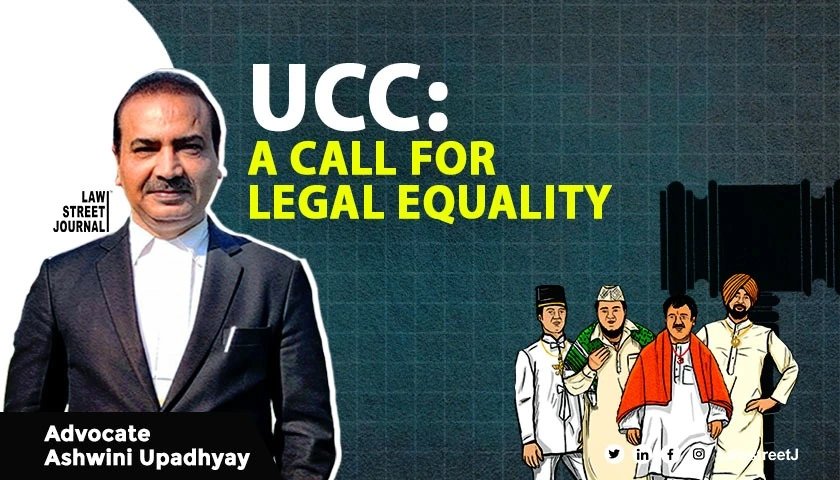
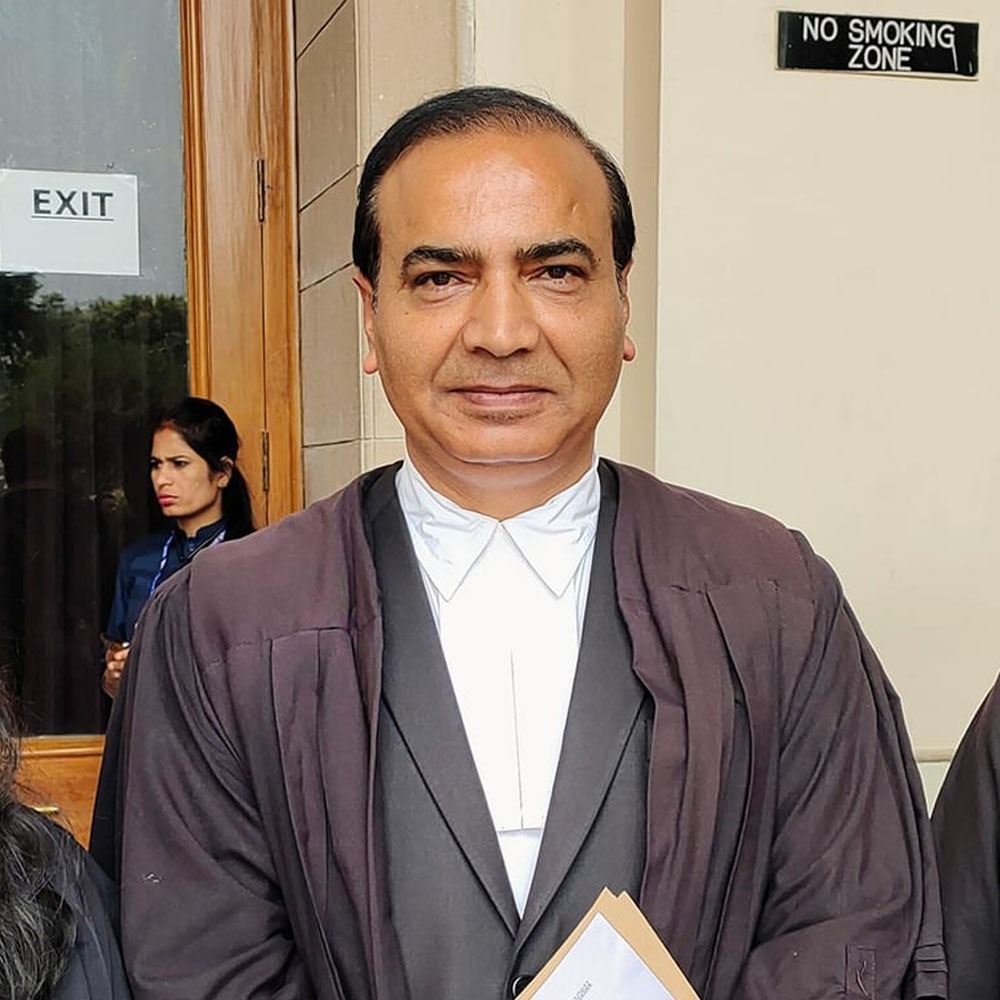



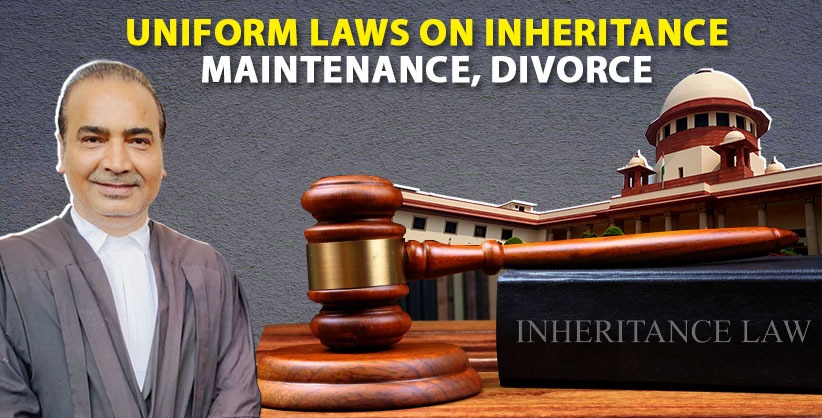
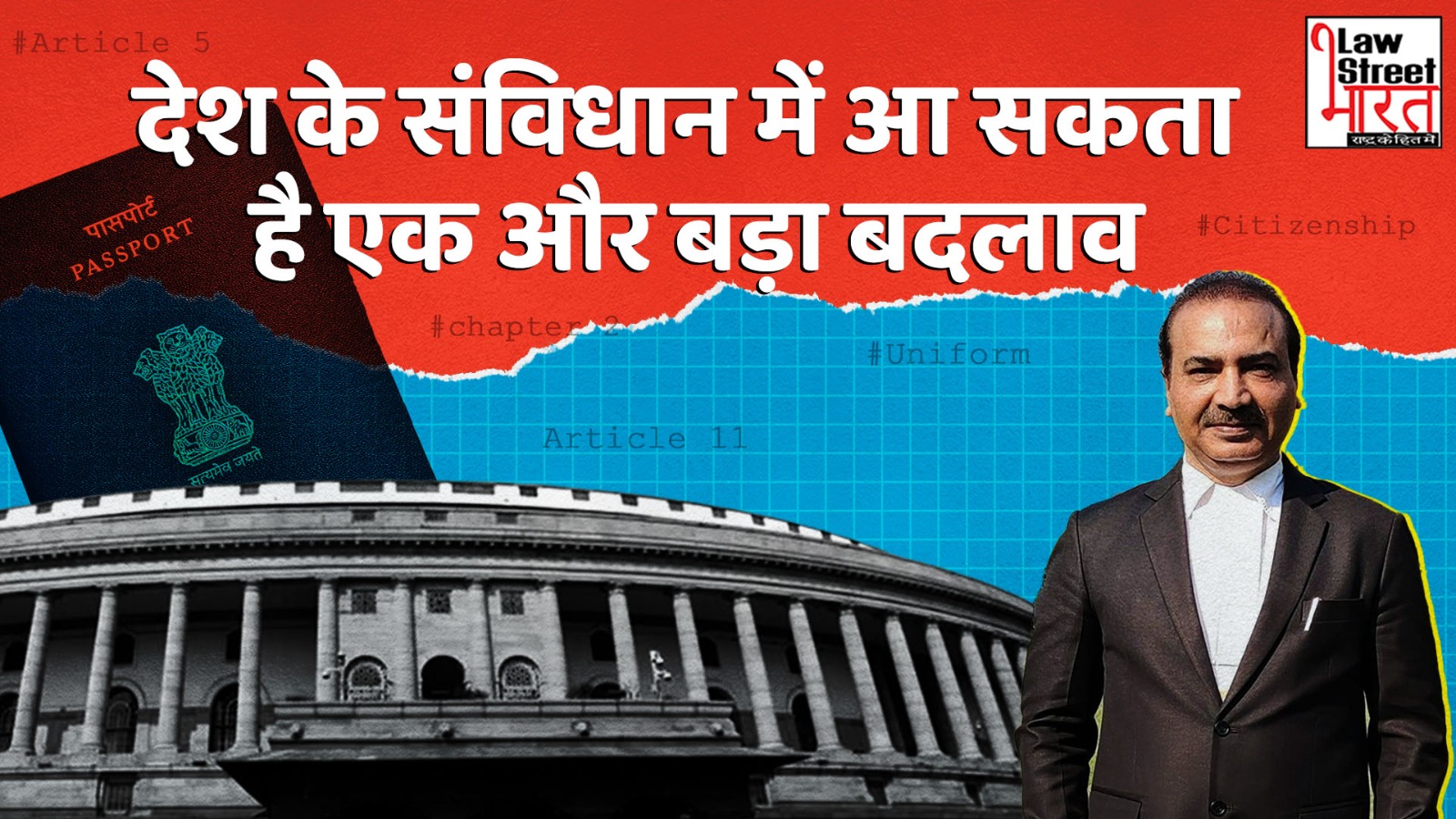
![UCC Bill tabled in Uttarakhand Assembly: Heres all you need to know [Read The Bill]](/secure/uploads/2024/02/lj_8061_UCC_Uttarakhand_Bill.jpg)
